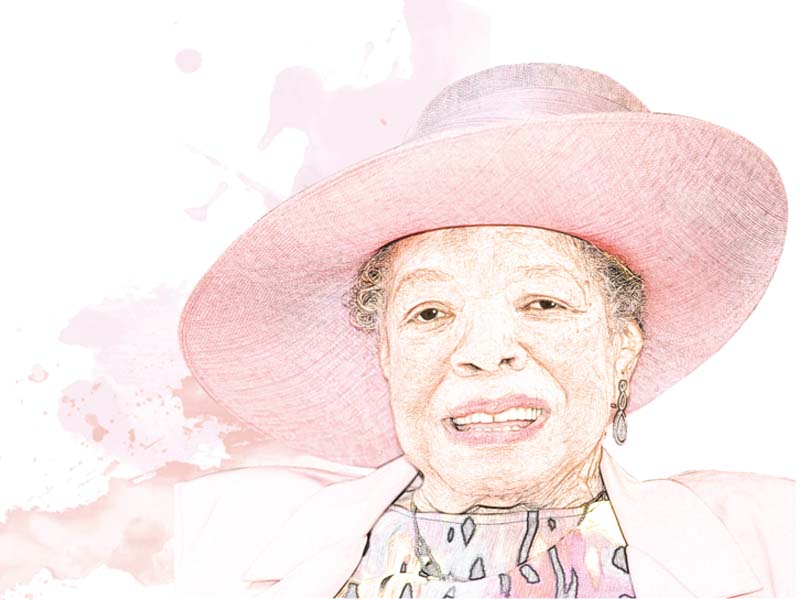
The first of these is ‘I Know Why The Caged Bird Sings’. I am familiar with her poems, but this book had been lying on my shelf for years before I finally delved into it. And from the first page, it was impossible to put it down. This book illustrates Angelou’s life from the age of three to 17, which was spent mostly in the American South in the 1930s, during the Great Depression. The book depicts her battles against racism, oppression and abuse. But beyond that, it paints a clear picture of what those times were like. As she beautifully describes her circumstances and surroundings, one becomes increasingly and intimately aware of just how terrible that time was, especially for a young black girl in the South.

Sent to live with her strict grandmother at the age of three, there is a constant shadow of sadness throughout the narrative. Abandoned by their mother, Angelou and her younger brother learn the workings of their grandmother’s general store and are exposed to the current state of affairs. Workers, neighbours and out-of-towners use this space to share their stories, and through this, a very young Angelou is able to paint a picture of America during that time.
A philosophical plea for sanity
Her story is jarring. Abused by her mother’s boyfriend, shuttled between cities, harshly disciplined by her grandmother for minor mistakes, a young Angelou struggles to find herself and explore her passions. She finally finds solace in words and reading, introduced to her by Mrs Bertha Flowers, a neighbour and someone who Angelou writes “has remained throughout my life the measure of what a human being can be”.
With Mrs Flowers’ help, you see her find her voice.
Throughout the novel, you see Angelou slowly transition from an apologetic and nervous youngster to a confident teen. The obstacles she faces at times seem so devastating that as a reader, you struggle to imagine them as real. But that is what makes this a mesmerising read. The situations are harrowing but the language is so beautiful that you cannot put the book down.
I was never a fan of autobiographies. In my mind, life is complicated enough and reading should be a break from reality. But Angelou managed to create art out of real life, which makes this narrative as engaging as fiction. For those who have yet to read it, I suggest give it a go. Looking so closely into her life might give you new perspective on your own. The book might make you respect Maya Angelou’s rise to success and popularity a lot more.
The writer is a published short story writer and blogger, with a background in advertising. She is a voracious reader and is passionate about travelling. She tweets @sufipanda.
Published in The Express Tribune, May 29th, 2016.
Like Life & Style on Facebook, follow @ETLifeandStyle on Twitter for the latest in fashion, gossip and entertainment.






1732361617-0/Untitled-design-(4)1732361617-0-270x192.webp)

1732308855-0/17-Lede-(Image)1732308855-0-270x192.webp)








COMMENTS
Comments are moderated and generally will be posted if they are on-topic and not abusive.
For more information, please see our Comments FAQ